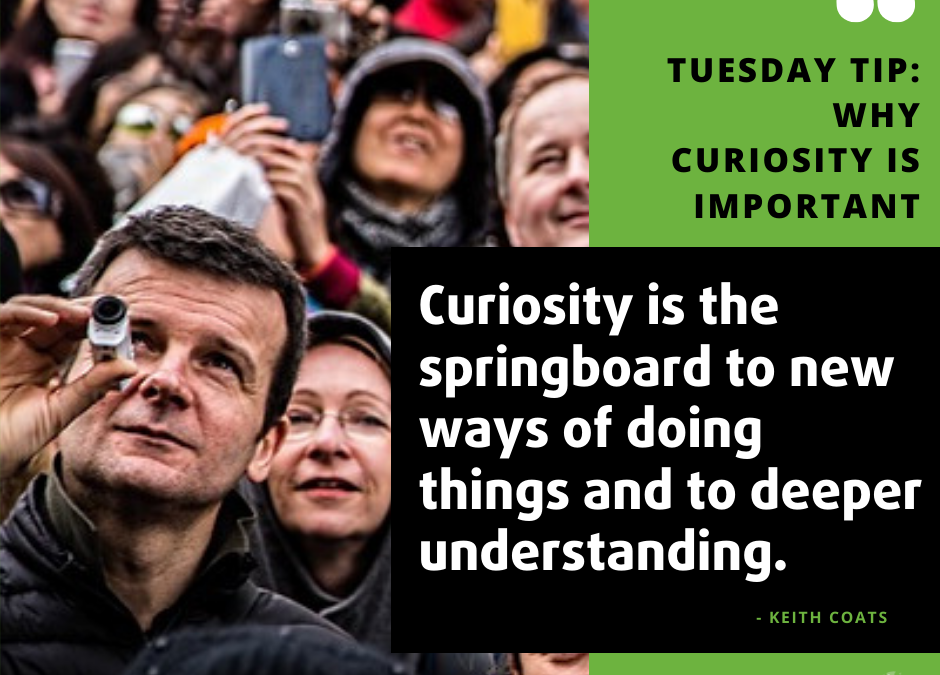First some trivia as a backdrop:
The saying ‘Curiosity killed the cat’ originated as a proverb that stated, ‘care killed the cat’. By ‘care’ it was meant ‘worry’ or ‘sorrow’. That form of the saying dates back to1598 and occurred in English playwright Ben Jonson’s play, Every Man in His Humour. William Shakespeare was quick to embrace the saying and incorporated it into his play Much Ado About Nothing. The earliest form of the precise expression as we know it today, first occurred in The Galveston Daily News in 1898 when in an article stated that, “curiosity killed a Thomas cat’ (a ‘Thomas’ cat was a light-hearted term for a ‘Tom’ cat, that is a male cat).
Curiosity hasn’t received a good press over the centuries. Saint Augustine wrote in Confessions, AD 397 that, in the eons before creating heaven and earth, God “fashioned hell for the inquisitive”. John Clarke, in Paroemiologia, 1639 suggested, “He that pryeth into every cloud may be struck with a thunderbolt”. In Don Juan, Lord Byron called curiosity “that low vice”. Perhaps this is where the origins of discouraging curiosity are to be found!
However the curiosity that we are talking about here is of the type that wants to ‘know what is behind the wall’ and why the wall was built in the first place. It is a questioning curiosity that challenges the status quo; it is a mind-set that wants to know why, how, when and where.
In a world saturated by information – not all of which is reliable, accurate or trustworthy, curiosity serves as a safety check, a door opener and game-changer. Curiosity to ‘find a better way’ is the catalyst for innovation, learning and growth.
Curiosity is the enemy of those who seek to oppress, dictate and govern without consideration. Crushing curiosity is in the interests of organisations and systems that resist change and active participation from those within the system. Curiosity can save us from dull repetition and monotony. Curiosity is the springboard to new ways of doing things and to deeper understanding. Albert Einstein once said that he had, “no special talent. I am only passionately curious.”
Curiosity and adaptability are natural bedfellows and in our volatile, uncertain, complex and ambiguous world (our ‘VUCA’ world), nurturing curiosity at both a personal and organisational level is fundamental to adapting to the disruptive and changing context in which we find ourselves.
The need to be adaptive is essential in the quest to be ‘future-fit’ and curiosity is an important enabler in the process of developing adaptive intelligence.
We need to keep curiosity alive for both ourselves and for those around us. We need to promote, nurture and embrace a kind of curiosity that will see others and us reaching for something more, something better and in the process of doing so, discover anew.
Here are 7 reflective questions to help you connect or reconnect with your sense of curiosity:
- What is your stance on curiosity? How has it shown up in your life?
- When were you at your most curious? (What was the context / situation that allowed this to be the case?)
- Would others describe you as ‘curious’? (Why would they give the answer they do?)
- What would happen if you showed a greater sense of curiosity at both work and in your personal life?
- Who is the most curious person you know? Why do you think they are so curious and what is it you admire about how they demonstrate this characteristic?
- What one question could you ask that would start you on a more curious pathway? (To whom will you ask it and when?)
- What do you imagine will happen if you were to consistently practice greater curiosity?
Exercises to try:
- Read a book or watch a movie that you ordinarily wouldn’t read / watch.
- Become aware of those around you who practice curiosity. A hint: It might be somebody who consistently asks good questions and also don’t limit your search to only contemporaries or elders. The most curious person within your network might be someone who is considerably younger than you! Having identified the person, watch what they do; ask if you can chat to them and dig a bit deeper into what it is you see in them insofar as their ability to demonstrate curiosity. Become a ‘student’ of curiosity and allow them to be one of your teachers.
- Invite someone who is not ‘like you’ to coffee and get to know them a little better by asking them to share their story.
Good advice to end with comes from Nobel Laureate Richard Feynman, an American physicist best known for his work in quantum mechanics and particle physics. Feynman said that, “Study hard what interests you in the most undisciplined, irreverent and original manner possible”. So, one final question for your consideration: What might this be in your life?
No, curiosity didn’t kill the cat…it merely allowed our cat to explore yet another of its nine lives!

The Future Focused Leadership Toolkit
Management guru, Peter Drucker, said: “If you don’t ask the right questions, it doesn’t matter what your answers are”. We have a view that leaders are the people who have the answers. But actually, leaders today need to be much better at asking the right questions. In fact, we all need to be better at doing this, and our organisations need to encourage and enable us to do so.
Find out more about our keynote presentation to help you and your team develop the practical tools and skills of a futurist, including curiosity as one of those key skills.


